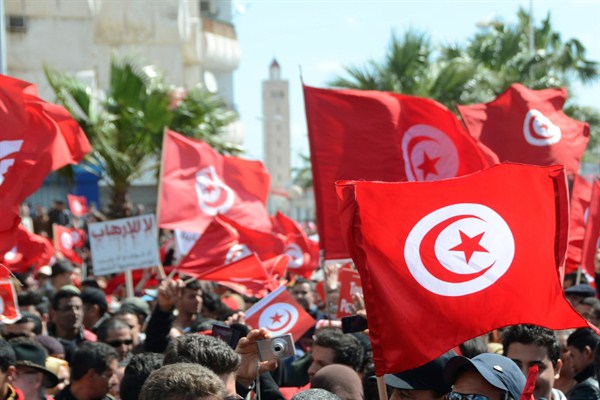On Thursday, Tunisia’s parliament adopted a series of articles in a new counterterrorism bill to replace its authoritarian 2003 law, part of the government’s efforts to bolster security in response to rising domestic and regional threats. Amid outcry from human rights groups, deputies overwhelmingly voted in favor of three provisions authorizing the death penalty for acts of terrorism, despite a de facto moratorium on executions that Tunisia has observed since 1991. Critics argue that the bill, which was issued following the March 26 attack on the Bardo museum that left 22 dead, falls short of international rights standards—notably in its broad definition of terrorism, identical to the 2003 version, and detention policy—and could fuel extremism.
Tunisia has fared relatively well since the 2011 uprising that unseated dictator Zine el Abidine Ben Ali, boasting a new constitution, a democratically elected coalition government and a recently launched truth and dignity commission. But grievances over unemployment persist, and episodic violence has targeted foreigners in a deliberate attempt to undermine Tunisia’s tourism sector, which accounts for 20 percent of its economy.
“Tunisia is living a paradox,” Tunisian journalist Sarah Ben Hamadi said in an email. Despite its successes, it “represents the largest contingent of foreign fighters in Iraq and Syria, and is now a target for attacks launched by its ‘own children.’” Ben Hamadi attributes this duality to a weakened state that, following Ben Ali’s ouster, granted amnesty to extremists and, in an attempted departure from authoritarian practices, disinvested in security. Regional turmoil hardly helps, and Tunisia’s porous borders with Algeria and Libya facilitate the flow of arms and extremists in both directions.

